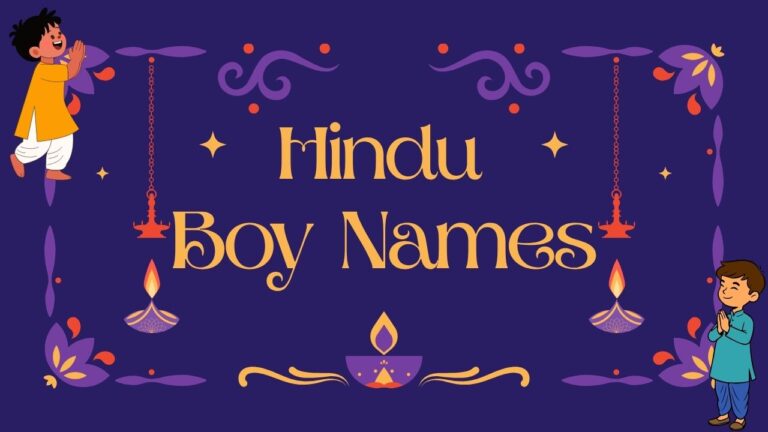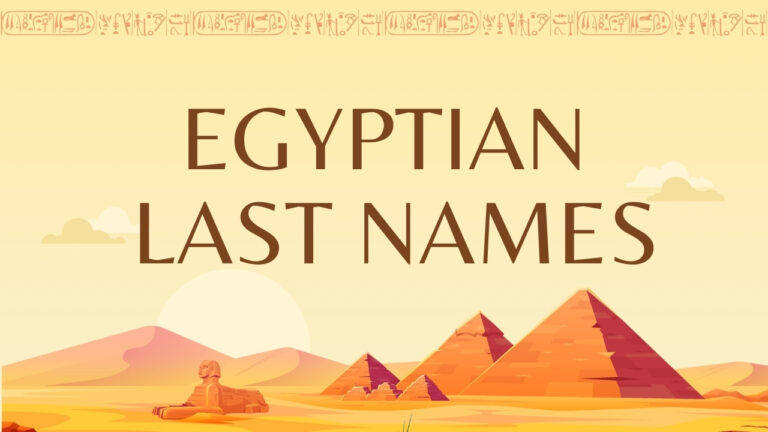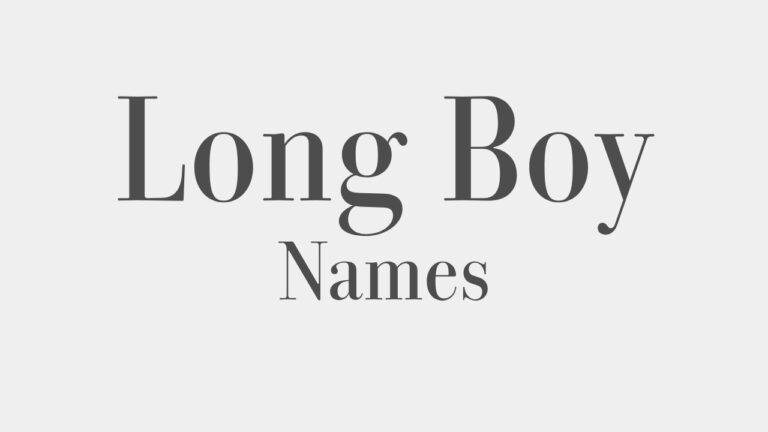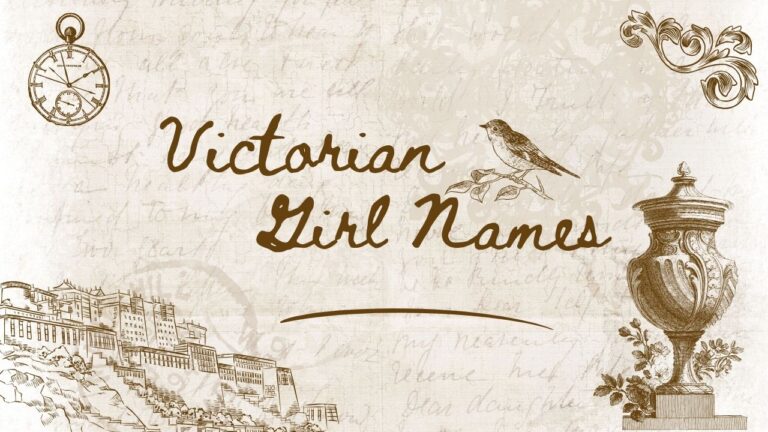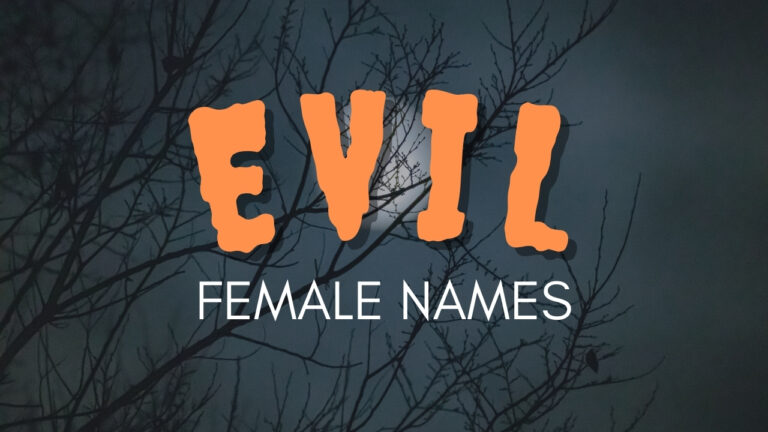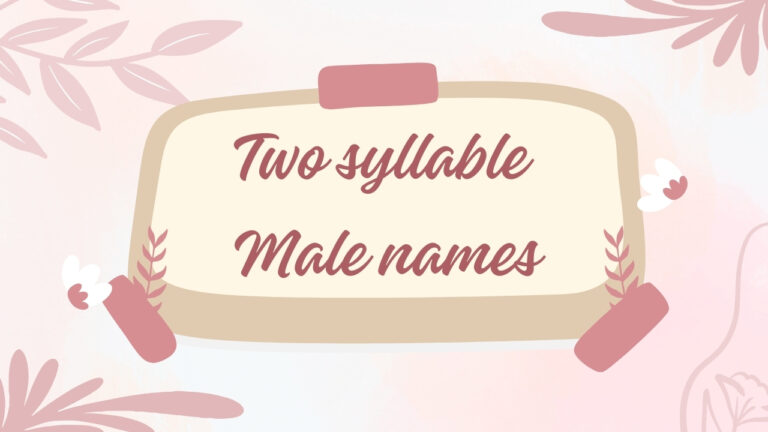300+ Romanian Names: Male, Female, Medieval & Traditional
Romanian names carry a rich history shaped by culture, tradition, and heritage. They reflect influences from Latin, Slavic, and other European roots, making them meaningful and diverse. From male Romanian names that highlight strength and character to female Romanian names known for elegance and grace, there is a wide variety to explore.
You can also find unisex Romanian names that work well for both genders, along with unique Romanian names that stand out for their charm. Many families cherish old Romanian names passed down through generations, while others seek rare Romanian names that feel special and uncommon.
Traditional Romanian names remain timeless, yet there are also beautiful Romanian names admired for their soft and melodic sound. In modern times, popular Romanian names continue to gain attention, though ancient Romanian names still hold deep cultural value.
Together, these naming styles reflect the identity and spirit of Romania.
Also Read:250+ Ethereal Names: Male, Female, Unisex, Unique & Strong
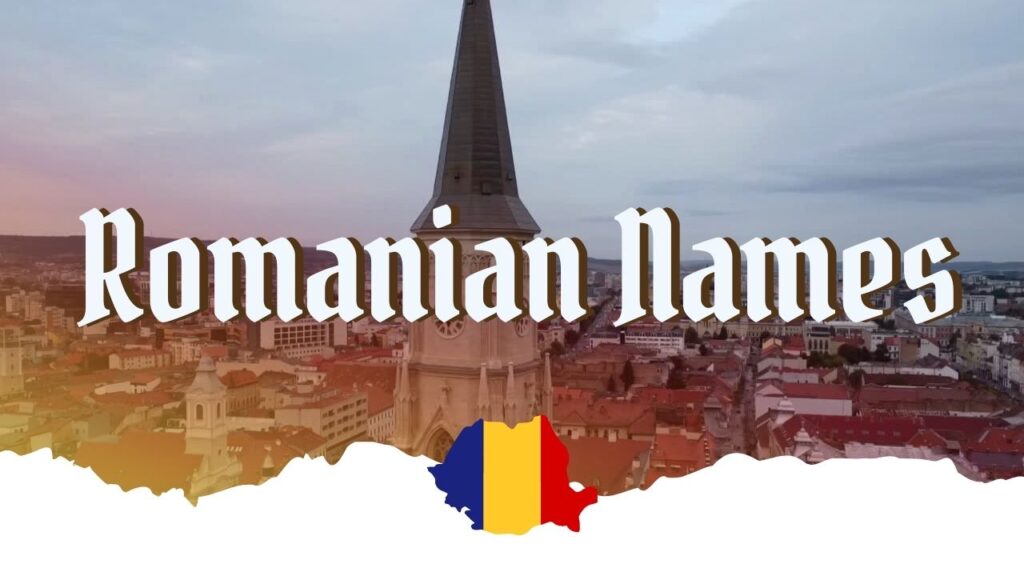
male Romanian names
- Doru – Derived from the Romanian word “dor” meaning longing or yearning, often symbolizing deep emotional connection.
- Mihail – Romanian form of Michael, meaning “Who is like God?” and often linked to strength and faith.
- Florin – Comes from Latin “florus” meaning flower, a popular name symbolizing growth and life.
- Radu – A historical name meaning “happy” or “willing,” connected to medieval rulers.
- Viorel – Refers to a little violet flower, often chosen for its soft yet masculine tone.
- Costel – Diminutive of Constantin, meaning “steadfast” or “constant.”
- Ionel – A diminutive of Ion (John), symbolizing tradition and simplicity.
- Tiberiu – Inspired by the Tiber River in Rome, showing Roman influence.
- Lucian – From Latin “lux” meaning light, a name representing brightness and wisdom.
- Cătălin – Popular Romanian name meaning “pure,” often given to boys for its gentle sound.
- Dacian – Connected to the ancient Dacians, the ancestors of Romanians, symbolizing heritage.
- Vladislav – Slavic-rooted name meaning “glorious ruler,” tied to nobility.
- Mircea – Means “peace” in Slavic, famously borne by Romanian ruler Mircea the Elder.
- Ilie – Romanian form of Elijah, meaning “my God is Yahweh.”
- Gheorghe – Traditional form of George, meaning “farmer” or “earth-worker.”
- Octavian – Of Roman origin, meaning “eighth,” tied to emperors and power.
- Nicușor – A diminutive of Nicolae, meaning “victory of the people.”
- Șerban – Old Romanian name often associated with nobility and historic families.
- Cezar – Inspired by Julius Caesar, symbolizing leadership and authority.
- Aurel – From Latin “aureus” meaning golden, representing value and light.
- Sorin – Derived from “soare” meaning sun, often symbolizing warmth and brightness.
- Dragoș – From Slavic roots meaning “precious” or “dear,” tied to early Moldavian leaders.
- Petru – Romanian form of Peter, meaning “rock” or “stone.”
- Traian – Honors Roman Emperor Trajan, symbolizing strength and conquest.
- Dumitru – Romanian form of Demetrius, meaning “follower of Demeter,” tied to farming and fertility.
female Romanian names
- Adelina – Meaning “noble” or “kind,” often chosen for its elegant sound.
- Sorina – Derived from “soare” (sun), symbolizing brightness and warmth.
- Lavinia – Of Latin origin, linked to Roman legend, known for beauty and grace.
- Doinița – From “doina,” a traditional Romanian folk song, symbolizing culture and tradition.
- Camelia – Inspired by the camellia flower, representing beauty and refinement.
- Otilia – A gentle-sounding name meaning “wealth” or “fortune.”
- Corina – Greek origin, meaning “maiden,” popular for its timeless style.
- Maricica – A diminutive of Maria, adding tenderness and affection.
- Silvia – Of Latin origin, meaning “forest” or “woods,” linked with nature.
- Carmen – Popular across Europe, meaning “song” or “poem,” also tied to Romanian musical heritage.
- Ilinca – Feminine form of Ilie (Elijah), symbolizing faith and tradition.
- Daciana – Inspired by the ancient Dacians, representing heritage and strength.
- Raluca – A melodic name of Slavic origin, meaning “white flower.”
- Felicia – From Latin “felix,” meaning happy or fortunate.
- Geta – Refers to the ancient Getae tribe, symbolizing Romanian roots.
- Oana – A common short form of Ioana (Joanna), meaning “God is gracious.”
- Valeria – Latin origin, meaning “strength” or “health.”
- Ancuța – A diminutive of Ana, often used with affection.
- Veronica – Meaning “true image,” with both Christian and cultural significance.
- Elvira – Of Gothic origin, meaning “truth” or “white,” admired for its old-world charm.
- Florica – Derived from “floare” (flower), symbolizing delicacy and beauty.
- Steliana – Connected to “stea” (star), representing brightness and hope.
- Irina – Of Greek origin, meaning “peace,” widely loved in Romania.
- Magdalena – Biblical name meaning “from Magdala,” associated with devotion.
- Zenovia – Of Greek origin, meaning “life of Zeus,” rare and noble-sounding.
unisex Romanian names
- Alin – Means “to soothe” or “to comfort,” used for both boys and girls in some regions.
- Marin – Derived from Latin “marinus” (of the sea), a coastal-inspired name used for both genders.
- Adi – Short form of Adrian or Adina, widely used as a gender-neutral nickname.
- Nicu – Common diminutive of Nicolae or Nicoleta, applied to both boys and girls.
- Dana – Popular as both a short form of Daniel/Daniela, meaning “God is my judge.”
- Stelu – From “stea” (star), used as a sweet unisex nickname.
- Miki – Friendly nickname for Mihai or Mihaela, often gender-neutral.
- Sami – Short form of Samuel or Samira, with meanings linked to “heard by God.”
- Lumi – Derived from “lumină” (light), expressing brightness, suitable for boys or girls.
- Cris – Shortened from Cristian or Cristina, making it widely unisex.
- Toni – Adapted from Anton/Antonia, used freely across genders.
- Gabi – Short for Gabriel or Gabriela, very common as a unisex choice.
- Vali – Diminutive of Valeriu or Valeria, symbolizing health and strength.
- Reni – Derived from Renata or Renel, chosen as a modern unisex name.
- Pali – From Paul or Paula, simple and gender-neutral.
- Neli – A gentle name, linked to Cornel or Cornelia, used for both.
- Ica – Rare and old-fashioned, but found as a unisex diminutive in rural Romania.
- Sebi – Short for Sebastian or Sebastiana, lively and modern sounding.
- Didi – Playful diminutive, used affectionately for both boys and girls.
- Livi – Rooted in Liviu or Livia, symbolizing life, often used without gender distinction.
- Ari – From Ariadna or Arian, a stylish and modern unisex option.
- Noni – Soft and affectionate nickname, applied across genders.
- Feli – Derived from Felicia or Felix, symbolizing happiness and fortune.
- Rodi – From Rodica or Radu, associated with growth and heritage.
- Titi – Traditional diminutive used for both boys and girls, often passed down in families.
unique Romanian names
- Neagu – An old Romanian surname-turned-first-name, tied to medieval nobility.
- Dorina – From “dor” (longing), rarely used today, giving it a unique cultural feel.
- Zamfir – Meaning “sapphire,” associated with brilliance and rarity.
- Luminița – Derived from “light,” symbolizing hope and clarity, uncommon today.
- Dorel – A traditional name with Slavic roots, now considered rare and unique.
- Smaranda – Linked to the emerald gemstone, vibrant and distinctive.
- Basarab – Ancient name of a ruling dynasty, unique to Romanian heritage.
- Anastasia – Though globally known, in Romania it has a unique spiritual weight meaning “resurrection.”
- Dochia – From local legend of Baba Dochia, a folkloric figure symbolizing spring.
- Lucica – Diminutive of Lucia, but now very rare, making it unique.
- Ștefanita – Historical diminutive of Ștefan, once used for royalty, rarely given today.
- Paraschiva – Inspired by Saint Parascheva, a name with deep spiritual uniqueness.
- Codrin – From “codru” (forest), symbolizing nature and wilderness.
- Varvara – Old and distinctive, Romanian form of Barbara, meaning “foreign woman.”
- Horia – Tied to 18th-century Romanian revolutionary Horea, rare and historical.
- Ispronie – An archaic name of Byzantine origin, almost unused today.
- Daria – Persian-rooted, meaning “possessing goodness,” elegant and less common in Romania.
- Bogdănița – Diminutive form of Bogdan, charmingly unique and affectionate.
- Teodoraș – A diminutive of Teodor, rarely used, giving it a rare touch.
- Iustina – From Latin “just,” a strong yet uncommon feminine name.
- Pantelimon – Greek origin, tied to an Orthodox saint, rarely chosen in modern times.
- Mioara – From “mioară” (lamb), symbolizing innocence and gentleness.
- Ștefaniața – Old diminutive of Ștefania, found in folklore but unique today.
- Galina – Slavic-rooted name meaning “calm” or “healer,” rare in Romanian use.
- Sofronie – From Greek “wise, self-controlled,” once given in monasteries, now very rare.
old Romanian names
- Pătru – Old form of Petru (Peter), once common in villages, meaning “rock.”
- Dochița – A diminutive of Dochia, tied to Romanian folklore about springtime.
- Șerbu – Traditional rural name, linked to the old word for “serf” or “farmer.”
- Ancuța – Historic diminutive of Ana, often found in Romanian literature and folklore.
- Moise – Romanian form of Moses, meaning “drawn out of the water.”
- Tănase – Old Romanian surname that became a first name, tied to family lineages.
- Agripina – Rare old name of Roman origin, meaning “born feet first.”
- Barbu – Derived from “barbă” (beard), once a masculine marker of maturity.
- Profira – Ancient feminine name, linked to the color purple (royalty and dignity).
- Călin – From old Slavic roots, symbolizing beauty and romance, common in folk songs.
- Chirila – From Greek Kyrillos, meaning “lordly,” used centuries ago.
- Safta – Feminine name from Hebrew origin, meaning “pure” or “clear.”
- Manole – Known from the legend of “Meșterul Manole,” a builder’s sacrifice tale.
- Domnica – From Latin “Dominicus,” meaning “belonging to the Lord,” once given to Sunday-born girls.
- Cojocaru – Old occupational name meaning “fur coat maker,” sometimes used as a first name.
- Nae – Diminutive of Nicolae, historically used as a stand-alone name.
- Vasilica – Popular in the past, diminutive of Vasile, often given during Christmas.
- Iordache – Romanian form of Greek Georgakis, meaning “farmer.”
- Catinca – Archaic diminutive of Ecaterina, meaning “pure.”
- Zaharia – Biblical name meaning “God has remembered,” once common in rural Romania.
- Domnița – Literally means “young lady” or “princess,” once used poetically as a name.
- Dascălu – Means “teacher,” historically used as both a surname and rare given name.
- Frosa – Short form of Eufrosina, meaning “joy” or “delight.”
- Stavru – From Greek “stavros” (cross), tied to Orthodox Christian tradition.
- Paraschiv – Old male name from Greek, linked to Friday (Paraskevi), symbolizing preparation.
rare Romanian names
- Acatia – Of Greek origin, meaning “innocent” or “pure,” almost unused today.
- Boian – Slavic-rooted, meaning “battle” or “warrior,” rarely chosen now.
- Floricaș – Old diminutive of Florin/Florica, scarcely heard in modern times.
- Dochiaș – Related to the Baba Dochia legend, but a rare variation.
- Irimia – Archaic Romanian form of Jeremiah, meaning “God will uplift.”
- Nastasia – Old-fashioned form of Anastasia, rarely used in Romania today.
- Costandin – Dialectal form of Constantin, preserved in rural areas.
- Leontina – Derived from “lion,” symbolizing bravery, but uncommon now.
- Buzdugan – Inspired by the mace weapon used by medieval leaders, extremely rare as a first name.
- Doraș – Rare diminutive of Dor or Doru, symbolizing longing and affection.
- Zarifa – Of Middle Eastern origin, meaning “graceful,” rarely found in Romania.
- Filofteia – Name of a revered Romanian saint, uncommon in everyday use.
- Tudosie – Old form of Tudor, rarely used in modern naming.
- Malvina – Literary-inspired name, meaning “smooth brow,” introduced by poets.
- Eremia – Ancient form of Jeremiah, tied to monastic traditions, rare today.
- Prisca – From Latin “Priscus” (ancient, venerable), almost extinct in Romanian use.
- Darie – Of Persian roots, meaning “possessor of goodness,” now a rare gem.
- Genoveva – Meaning “woman of the race,” used centuries ago but nearly forgotten.
- Iacobina – Feminine form of Iacob (Jacob), historically rare.
- Oreste – Greek-rooted name meaning “mountain dweller,” very uncommon.
- Cleon – Ancient Greek name meaning “glory,” found occasionally in Romania.
- Prisian – Rare, possibly derived from old regional names, with uncertain origin.
- Agripin – Masculine form of Agripina, tied to Roman heritage, almost never used today.
- Sultana – Once used in rural Romania, meaning “queen” or “lady,” very rare now.
- Trandafir – Means “rose” in Romanian, a poetic and extremely rare given name.
traditional Romanian names
- Ana – Classic biblical name meaning “grace,” one of the most enduring Romanian choices.
- Ion – Romanian form of John, meaning “God is gracious,” deeply rooted in history.
- Maria – Strong Christian name symbolizing purity and devotion, very traditional in Romania.
- Vasile – From Greek “Basileios,” meaning “king,” tied to Orthodox traditions.
- Andrei – Romanian form of Andrew, meaning “manly” or “brave,” linked to Saint Andrew, patron of Romania.
- Elena – Meaning “shining light,” a timeless feminine name with Greek roots.
- Nicolae – Meaning “victory of the people,” carried by saints and rulers.
- Gheorghița – Feminine traditional form of Gheorghe (George), linked to St. George.
- Dumitrița – Female version of Dumitru, tied to St. Demetrius and agricultural traditions.
- Ioana – Feminine form of Ion, meaning “God is gracious,” very traditional and loved.
- Pavel – Romanian form of Paul, meaning “small” or “humble,” biblical in origin.
- Ruxandra – Old traditional name with Greek roots, meaning “protector of mankind.”
- Ilinca – Feminine name tied to Ilie, connected to biblical and folk traditions.
- Ștefan – Meaning “crown” or “garland,” historically borne by rulers and saints.
- Veronica – Traditional Christian name meaning “true image,” tied to legend of Saint Veronica.
- Crina – Inspired by “crin” (lily), symbolizing purity and beauty.
- Matei – Romanian form of Matthew, meaning “gift of God,” strongly biblical.
- Teodora – Meaning “gift of God,” traditional and spiritual.
- Ioan – Another deeply traditional form of John, with strong religious ties.
- Marinela – Feminine name derived from Marin, linked to “the sea.”
- Constantin – Meaning “steadfast,” strongly associated with faith and Romanian emperors.
- Doroteea – From Greek, meaning “gift of God,” used in Orthodox tradition.
- Simion – Romanian form of Simeon, meaning “heard by God,” a biblical classic.
- Irina – Meaning “peace,” an enduring Christian and traditional name.
- Ecaterina – Greek origin, meaning “pure,” traditional and elegant, tied to saints.
medieval Romanian names
- Bogdan – Meaning “God-given,” a strong medieval name borne by Moldavian rulers.
- Dragomir – Derived from Slavic roots, meaning “precious peace,” used among noble families.
- Vladislav – Meaning “glorious rule,” tied to medieval rulers and warriors.
- Neacșu – A medieval name meaning “watchful” or “careful,” found in old documents.
- Călin – Associated with medieval poetry, meaning “handsome” or “good-looking.”
- Șerban – A noble name linked to Wallachian boyars, possibly meaning “shepherd.”
- Petru Rareș – Petru was a common medieval name, meaning “rock,” borne by princes.
- Drăgan – Derived from “drag” meaning “dear,” a strong and respected medieval name.
- Matei Basarab – Matei means “gift of God,” famously tied to the Wallachian prince.
- Stroe – A medieval noble name, rare today but once prestigious.
- Costea – A common medieval given name, often linked with boyar families.
- Radu cel Mare – Radu means “happy” or “willing,” used by several Wallachian rulers.
- Dochia – A legendary medieval female name tied to myth and folklore.
- Ana-Maria – A classic Christian compound name, widespread in medieval Romania.
- Ilinca – Derived from Elena, used in medieval families, meaning “shining light.”
- Marcu – Medieval form of Marcus, meaning “dedicated to Mars.”
- Tudor – From Theodoros, meaning “gift of God,” often seen in noble families.
- Brândușa – Meaning “crocus flower,” a medieval feminine name tied to folklore.
- Pătrașcu – A diminutive of Petru, popular among Wallachian nobles.
- Gherghina – Feminine form of Gheorghe, tied to medieval Orthodox traditions.
- Basarab – A dynasty name of Cuman origin, meaning “father ruler.”
- Domnica – Feminine name meaning “belonging to the Lord,” used in medieval times.
- Hariton – A medieval Christian name of Greek origin, meaning “grace.”
- Mihnea – Derived from Mihail, meaning “Who is like God?” tied to Mihnea cel Rău.
- Ecaterina – Popular medieval female name, meaning “pure,” tied to saints and nobility.
beautiful Romanian names
- Amalia – Of Latin origin, meaning “work” or “industrious,” admired for its graceful sound.
- Daciana – Inspired by the ancient Dacians, giving a historical yet melodic beauty.
- Alina – Means “bright” or “beautiful,” soft and elegant in tone.
- Sabina – Roman heritage name linked to the Sabine women, both strong and gentle.
- Cătălina – Feminine form of Cătălin, meaning “pure,” admired for its flowing rhythm.
- Sonia – Of Greek origin, meaning “wisdom,” short yet beautiful.
- Ioanela – A delicate diminutive of Ioana, giving it sweetness and charm.
- Carmina – Means “song” or “poem,” evoking art and beauty.
- Adela – Latin origin, meaning “noble,” simple yet elegant.
- Iridian – Rarely used, linked to “iris,” symbolizing rainbow-like beauty.
- Roxana – Persian roots, meaning “bright” or “dawn,” admired for its exotic flair.
- Dalia – Inspired by the flower, symbolizing gentleness and grace.
- Mirela – A Romanian name meaning “admirable,” loved for its soft sound.
- Selena – Greek origin, meaning “moon,” giving a celestial beauty.
- Anisia – Derived from Agnes, meaning “pure,” lyrical and delicate.
- Floriana – From “floare” (flower), symbolizing natural beauty.
- Isabela – Variation of Elizabeth, meaning “God is my oath,” elegant and timeless.
- Loredana – Popularized by literature, admired for its melodious and graceful tone.
- Viviana – Latin origin, meaning “alive,” full of vibrancy and charm.
- Camelina – Inspired by the flower camelina, rare and lovely.
- Dorinaș – A softer, affectionate variant of Dorina, giving it unique beauty.
- Narcisa – From the narcissus flower, symbolizing elegance and refinement.
- Evelina – Of Old German origin, meaning “desired,” admired for its romantic tone.
- Olimpia – From Mount Olympus, symbolizing grandeur and divine beauty.
- Crenguța – Means “little branch,” poetic and nature-inspired, with rustic charm.
popular Romanian names
- Andra – A feminine form of Andrei, meaning “brave,” widely loved in modern Romania.
- Ciprian – From Cyprianus (“man from Cyprus”), a strong and popular masculine name.
- Larisa – Of Greek origin, meaning “citadel,” frequently chosen for baby girls.
- Raduța – Feminine diminutive of Radu, cheerful and well-liked.
- Denis – Romanian form of Dennis, meaning “follower of Dionysus,” common among boys.
- Gabriela – Feminine of Gabriel, meaning “God is my strength,” still very popular.
- Claudiu – From Latin Claudius, meaning “lame” or “enclosure,” strong historical roots.
- Aurelia – Feminine of Aurel, meaning “golden,” elegant and often used.
- Eduard – Romanian form of Edward, meaning “wealthy guardian,” stylish and popular.
- Simona – Feminine form of Simon, meaning “to hear,” frequently chosen for girls.
- Alberto – International name, meaning “noble and bright,” used in modern Romania.
- Cristina – Latin-rooted, meaning “follower of Christ,” a long-loved classic.
- Marius – Ancient Roman name, tied to Mars, symbolizing strength and masculinity.
- Bianca – Meaning “white” or “pure,” very trendy in recent decades.
- Valentin – Meaning “healthy” or “strong,” widely associated with love and kindness.
- Mihaela – Feminine of Mihail, meaning “Who is like God?” common across generations.
- Robert – Germanic origin, meaning “bright fame,” highly popular in Romania.
- Carmen-Elena – A double name combining elegance and tradition, frequently chosen.
- Alexandru – Classic name meaning “defender of the people,” extremely popular.
- Sorana – Feminine name derived from “soare” (sun), popular for its brightness.
- Daniel – Meaning “God is my judge,” consistently among the top names for boys.
- Anemona – Inspired by the flower anemone, lyrical and well-loved.
- Sebastian – Greek origin, meaning “venerable,” one of the most popular names today.
- Elisabeta – Traditional form of Elizabeth, meaning “God is my oath,” still widely used.
- Adrian – Latin-rooted, meaning “from Hadria,” stylish and continuously popular.
ancient Romanian names
- Decebal – Famous Dacian king who fought against Rome, symbol of bravery.
- Zalmoxis – Ancient Dacian deity linked to immortality and wisdom.
- Duras – Dacian ruler before Decebal, rare and historic.
- Comosicus – High priest and Dacian king, symbolizing spiritual leadership.
- Cotizo – Ancient Dacian leader known from Roman records.
- Dapyx – Dacian ruler in Scythia Minor, tied to early Romanian lands.
- Sarmizegetusa – From the ancient Dacian capital, sometimes used poetically as a name.
- Burebista – Great Dacian king who united the tribes, iconic in Romanian history.
- Oroles – Dacian king who fought the Bastarnae, remembered for discipline.
- Ziridava – Ancient Dacian fortress, revived as a rare poetic name.
- Naparis – Old Dacian river name, occasionally adapted as a first name.
- Dromichaetes – Thracian king admired for wisdom and diplomacy.
- Claudina – From early Roman influence in Dacia, meaning “enclosure.”
- Tomița – Derived from Tomis (ancient city Constanța), old yet melodic.
- Murgescu – Archaic family-rooted name from ancient pastoral traditions.
- Zinaida – Of ancient Greek origin, linked to Zeus, once popular in Byzantine Romania.
- Lisandru – Old Romanian form of Alexandros, meaning “protector of men.”
- Prisca – From Latin “Priscus,” meaning ancient or venerable, used in Roman Dacia.
- Sabin – Refers to the Sabine people of Italy, carried into Romania through Roman settlers.
- Domitian – Inspired by the Roman emperor, tied to early Christian Romania.
- Maximinus – Ancient Roman-rooted name, meaning “greatest,” preserved in chronicles.
- Severina – From Latin “severus” (serious, stern), an ancient feminine choice.
- Aurelius – Roman name meaning “golden,” widely known in Dacia’s Roman era.
- Marciana – Feminine of Marcus, tied to ancient Roman noblewomen.
- Ulpius – From Emperor Trajan’s full name (Marcus Ulpius Traianus), reflecting Roman heritage.
conclusion
Romanian names carry a special blend of history, culture, and beauty that makes them stand out across generations. From ancient roots that reflect the legacy of the Dacians and Romans to modern choices that continue to inspire, these names tell the story of a nation shaped by tradition and identity.
Whether simple, elegant, rare, or deeply spiritual, each name carries meaning beyond words. Exploring them is not only about finding the right name but also about discovering a piece of Romania’s heritage and the values that continue to live through its people.

